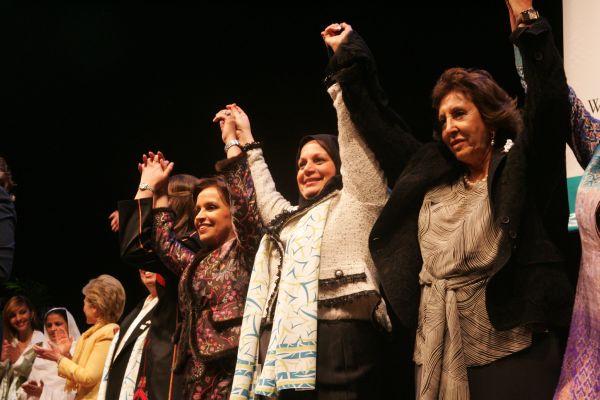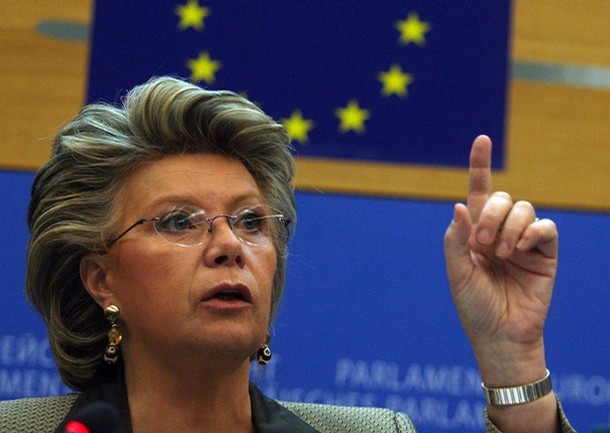Posted at 16:05h in
General by Mario In this post we want to share with you and walk you through how we have tried to make sure that the new logo clearly represents Wedu’s identity and values.
We wanted our new logo to represent even more than before the underlying value of passion that drives our daily action, spirit of innovation we bring in the design of our services, and the energy we put in all we do. It had to be strong and mature like the leaders we aim to catalyse, and of course we wanted it to be a cool piece of design.
We have tried to make sure that Wedu's logo was a clear distinction from that of traditional non-profit organizations operating in the education space. Wedu aims to be different in combining strong values of promotion of education with a dynamic service design process inspired by the best practices of leaders of every sector.
Red is the color of energy, strength, power, determination and passion. Red is a very emotionally intense color. It enhances human metabolism, increases respiration rate, and raises blood pressure. In heraldry, red is used to indicate courage. Specifically, dark red is
 Angela Merkel, Dilma Rousseff, Yingluck Shinawatra, Joyce Banda... Just to name a few of the incumbent female heads of government around the world. Compared to a century ago, women are gaining importance in both international and domestic politics as they are occupying various important positions in national governments and multilateral organizations. While it seems that more and more female politicians are rising in power, let us not be contend with the status-quo: only one-fifth of the seats in the parliaments are occupied by women worldwide, and the figure in Asia, Middle East and Pacific is even lower than the world average. Women, in today’s world, are still underrepresented in the political arena. What are the major obstacles that women face in political participation? According to studies, it is a complex issue as it can be traced back to a number of institutional, historical, socio-economic as well as cultural factors. UN Women found that in Bhutan,
Angela Merkel, Dilma Rousseff, Yingluck Shinawatra, Joyce Banda... Just to name a few of the incumbent female heads of government around the world. Compared to a century ago, women are gaining importance in both international and domestic politics as they are occupying various important positions in national governments and multilateral organizations. While it seems that more and more female politicians are rising in power, let us not be contend with the status-quo: only one-fifth of the seats in the parliaments are occupied by women worldwide, and the figure in Asia, Middle East and Pacific is even lower than the world average. Women, in today’s world, are still underrepresented in the political arena. What are the major obstacles that women face in political participation? According to studies, it is a complex issue as it can be traced back to a number of institutional, historical, socio-economic as well as cultural factors. UN Women found that in Bhutan,


 One month after the 15-year-old Pakistani education activist, Malala Yousafzai was shot in the head by the Taliban, the United Nations called upon the international community to observe November 10 as the International Malala Day. The UN special envoy for Global Education Gordon Brown marked the significance of this event that “country after country is adopting Malala as its symbol for a girl's right to school [as the] Malala Day is being celebrated with events in more than 100 countries”. It has symbolized that the fight of Malala and 32 million girls more for their basic rights of education will go on, and the world is in solidarity with ensuring education for every single child across the globe. Malala’s story has touched millions of people. She started writing a blog for the BBC describing people’s lives in her community under the Taliban’s rule – where girls are prevented from going to school because the regime believes girls' education is an obscenity – and
One month after the 15-year-old Pakistani education activist, Malala Yousafzai was shot in the head by the Taliban, the United Nations called upon the international community to observe November 10 as the International Malala Day. The UN special envoy for Global Education Gordon Brown marked the significance of this event that “country after country is adopting Malala as its symbol for a girl's right to school [as the] Malala Day is being celebrated with events in more than 100 countries”. It has symbolized that the fight of Malala and 32 million girls more for their basic rights of education will go on, and the world is in solidarity with ensuring education for every single child across the globe. Malala’s story has touched millions of people. She started writing a blog for the BBC describing people’s lives in her community under the Taliban’s rule – where girls are prevented from going to school because the regime believes girls' education is an obscenity – and
 Gender equality has been one of the founding principles of the European Union, and the principle has been successfully upheld as believed by many: men and women seem to enjoy equal fundamental rights in their daily lives, and nine out of ten highest ranked countries in terms of gender equality are in Europe, according to the United Nations Development Programme. The European women are apparently better off than their counterparts in other parts of the world, but the recent developing in the EU might have suggested that women still face invisible barriers to their advancement in the workplace. A week ago, the EU decided in the last minute to postpone the vote on a plan to oblige companies to reach a 40 percent female boardroom quota by 2020 as it was deeply unpopular with many of its member countries.
Gender equality has been one of the founding principles of the European Union, and the principle has been successfully upheld as believed by many: men and women seem to enjoy equal fundamental rights in their daily lives, and nine out of ten highest ranked countries in terms of gender equality are in Europe, according to the United Nations Development Programme. The European women are apparently better off than their counterparts in other parts of the world, but the recent developing in the EU might have suggested that women still face invisible barriers to their advancement in the workplace. A week ago, the EU decided in the last minute to postpone the vote on a plan to oblige companies to reach a 40 percent female boardroom quota by 2020 as it was deeply unpopular with many of its member countries.
 We are excited to announce to you all that Wedu has achieved charitable status and has been entered onto the
We are excited to announce to you all that Wedu has achieved charitable status and has been entered onto the 
 Wedu now has an awesome new logo and we feel this has really been the result of the collaboration of the whole Wedu community. We want to thank the designers who supported us in the development as well as all the people who took the time to share their views on the preliminary version. Three designers worked on the logo: Miriam Morato, Spanish designer currently living in Bangkok, Thailand; Greg Lam, talented Canadian student; and Alice Mazzilli, Italian, living in London. They put their talent pro-bono and enthusiastically shared their ideas and vision with us. Thank you! Special thanks go to Miriam for her whole contribution to defining several aspects of Wedu’s brand. Among our staff a big thanks goes to Xiju who has been coordinating the process and contributing with her own ideas and proposals. Indeed, the biggest appreciation goes to all
Wedu now has an awesome new logo and we feel this has really been the result of the collaboration of the whole Wedu community. We want to thank the designers who supported us in the development as well as all the people who took the time to share their views on the preliminary version. Three designers worked on the logo: Miriam Morato, Spanish designer currently living in Bangkok, Thailand; Greg Lam, talented Canadian student; and Alice Mazzilli, Italian, living in London. They put their talent pro-bono and enthusiastically shared their ideas and vision with us. Thank you! Special thanks go to Miriam for her whole contribution to defining several aspects of Wedu’s brand. Among our staff a big thanks goes to Xiju who has been coordinating the process and contributing with her own ideas and proposals. Indeed, the biggest appreciation goes to all If we are going to see real development in the world then our best investment is women. - Desmond Tutu, 1984 Nobel Peace Prize This year’s International Day for Disaster Reduction (IDDR) will be observed on 13th October. Since 1990 when it first begun, IDDR has become an important event which highlights the successes and the continuous attempts toward achieving safer and more resilient communities. “We cannot eliminate disasters, but we can mitigate risk”, said Ban Ki-moon, the Secretary-General of the United Nations in his statement for the IDDR. “We can reduce damage and we can save more lives.” The IDDR reminds us of the importance of preparedness at normal times. Natural hazards, such as earthquakes, floods and cyclones, need not to turn into “disasters” with casualties and economic damages – if effective preventive measures are in place. This year, the theme of the IDDR is
If we are going to see real development in the world then our best investment is women. - Desmond Tutu, 1984 Nobel Peace Prize This year’s International Day for Disaster Reduction (IDDR) will be observed on 13th October. Since 1990 when it first begun, IDDR has become an important event which highlights the successes and the continuous attempts toward achieving safer and more resilient communities. “We cannot eliminate disasters, but we can mitigate risk”, said Ban Ki-moon, the Secretary-General of the United Nations in his statement for the IDDR. “We can reduce damage and we can save more lives.” The IDDR reminds us of the importance of preparedness at normal times. Natural hazards, such as earthquakes, floods and cyclones, need not to turn into “disasters” with casualties and economic damages – if effective preventive measures are in place. This year, the theme of the IDDR is